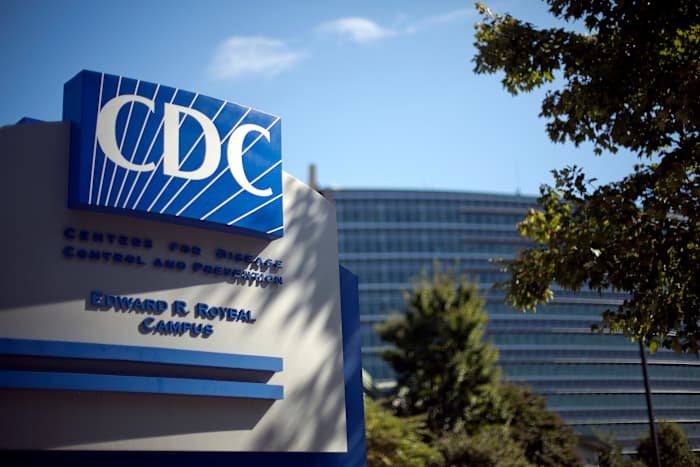Orlando, FL – This year, hazy skies and air quality alerts have become a common sight across many parts of the United States, as smoke from Canada’s wildfires drifts southward. While Central Florida, including Orlando, has largely escaped the worst of the smoke, the issue remains top-of-mind for residents concerned about air quality, health, and environmental policy. As the crisis unfolds, a political battle is brewing—not over climate change, but over who should be held accountable. Republican lawmakers have turned their attention to Canada, demanding more effective wildfire management across the border. What does this mean for Orlando, and what are the broader implications?
The 2024 Wildfire Season: Smoke Spreading Across the US
Canada’s wildfire season has shattered records in 2024, with millions of acres burned from British Columbia to Quebec. Unusually dry conditions, high temperatures, and strong winds have created a perfect storm for wildfires to ignite and spread. As a result, vast plumes of smoke have been carried by the jet stream into the United States, causing air quality alerts from the Midwest to the East Coast.
While Orlando hasn’t experienced the thick, orange haze seen in cities like New York or Chicago, some days have brought a subtle drop in air quality. Local experts warn that even small increases in airborne particulates can affect sensitive groups, such as children, the elderly, and those with respiratory issues. The Florida Department of Health continues to monitor conditions and advises residents to stay updated on air quality reports, especially as summer heat intensifies.
Republican Response: Focus on Canadian Fire Management
As smoke-filled skies became a national news headline, Republican lawmakers in Congress and across state legislatures quickly voiced their frustration—not at climate change, but at what they see as Canada’s inability to control its wildfires. Statements and press releases have called on Canadian leaders to “do more” to prevent fires and manage forests more effectively.
Senator Rick Scott (R-FL), while not representing the most directly affected states, echoed these concerns, stating, “Our neighbors to the north need to take forest management seriously. American families shouldn’t suffer because of uncontrolled Canadian wildfires.” Other GOP leaders have threatened trade repercussions or proposed international agreements to force better fire prevention north of the border.
This approach has drawn criticism from environmental advocates and some Democrats, who argue that focusing solely on forest management ignores the role of climate change in making wildfires more frequent and severe. Nevertheless, the debate in Washington remains focused on international accountability rather than domestic environmental policy.
Climate Change: The Unspoken Factor
Despite mounting scientific evidence linking the increase in wildfire frequency and intensity to climate change, many Republican politicians have steered clear of addressing global warming directly. Instead, their focus remains on immediate, tangible causes—such as forest management practices in Canada.
Environmental experts say this approach leaves a significant gap in policy discussions. According to the EPA, rising temperatures and prolonged droughts are making forests more susceptible to ignition and rapid fire spread. In Florida, the risk of wildfires is also rising, with the state’s Division of Forestry reporting more frequent “red flag” days each year.
Orlando residents may not face wildfire smoke daily, but the city remains vulnerable to the effects of a changing climate, including higher temperatures, increased rainfall, and the potential for more intense storm seasons. Ignoring climate change in the wildfire conversation, critics say, is a missed opportunity to address the root of the problem before it worsens.
Local Impact: What Orlando Residents Should Know
Even though Orlando has not been at the epicenter of smoke plumes, the issue is a reminder of how interconnected our environment has become. Air quality in Central Florida can be affected by events thousands of miles away, making it important for residents to stay vigilant and informed.
Some practical steps Orlando residents can take include:
- Monitoring local air quality using resources like AirNow.gov
- Limiting outdoor activities on days when air quality is poor, especially for vulnerable groups
- Using air purifiers indoors if smoke or pollen levels are high
- Supporting local and national efforts to address both wildfire prevention and climate change
Additionally, as wildfire risk grows even in Florida, local officials recommend preparing emergency plans and staying aware of fire danger levels. The Orlando Fire Department has resources for families to learn about evacuation plans and fire safety tips—information that’s increasingly relevant as climate patterns shift.
Looking Ahead: Cooperation vs. Blame
As the wildfire season continues, the debate over responsibility isn’t likely to fade. While some politicians demand more action from Canada, others emphasize the need for cooperation and shared solutions. Wildfire smoke knows no borders, and neither do the environmental challenges that come with a warming planet.
For Orlando and the rest of Florida, the Canadian wildfire crisis is a wake-up call. Air quality and climate resilience are not just issues for the distant North—they’re local concerns that require thoughtful, science-based responses at every level of government.
Conclusion: Share Your Thoughts
The arrival of Canadian wildfire smoke in the U.S. has sparked a heated debate over accountability and solutions. Should Canada do
















